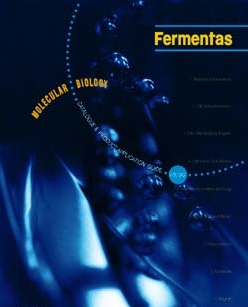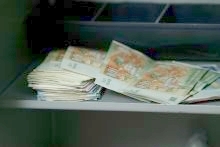A federal judge ruled that Microsoft should be broken into two companies, a decision that could radically tilt the balance of power in the technology industry.
Published:
8 June 2000 y., Thursday
U.S. District Judge Thomas Penfield Jackson decided that Microsoft could retain its operating systems for PCs, TV set-top boxes, handheld computers and other devices. But the company would be forced to create a separate firm for its other software and Web products--such as Outlook, Internet Explorer, BackOffice and the Microsoft Network (MSN)--resulting in sweeping changes from corporate offices and homes to the entire Internet.
In addition to the breakup, Jackson imposed restrictions on Microsoft's business practices that go into effect in 90 days unless an appeals court blocks the action. Microsoft said it will immediately appeal the ruling. As part of a strongly worded decision, Jackson said the court "has reluctantly come to the conclusion...that a structural remedy has become imperative: Microsoft as it is presently organized and led is unwilling to accept the notion that it broke the law or accede to an order amending its conduct." He added that Microsoft "continues to do business as it has in the past and may yet do to other markets what it has already done to the PC operating system and browser markets."
Jackson also said Microsoft has "proved untrustworthy in the past." He said Microsoft should not be surprised by the ruling, either. According to Jackson, Microsoft had sought "months of additional time" in further hearings regarding a breakup.
The decision effectively marks the end of a bitter two-year trial that exposed Microsoft's hardball business tactics. But the case is far from over: Microsoft immediately said it will appeal, which could tie up the case for two or more years.
"This is the beginning of a new chapter in this case," Microsoft chairman Bill Gates said in a videotaped response. "We will be appealing this decision, and we have a very strong case on appeal.
Copying, publishing, announcing any information from the News.lt portal without written permission of News.lt editorial office is prohibited.
The most popular articles
 Elinor Ostrom -- an American professor who developed ways to manage common property - is the first woman to win the Nobel prize for economics.
more »
Elinor Ostrom -- an American professor who developed ways to manage common property - is the first woman to win the Nobel prize for economics.
more »
 The European Commission has today approved an application from the Netherlands under the Globalisation Adjustment Fund (EGF) for € 386 114 to help 435 workers made redundant by Heijmans N.V., a Dutch construction company, back into jobs.
more »
The European Commission has today approved an application from the Netherlands under the Globalisation Adjustment Fund (EGF) for € 386 114 to help 435 workers made redundant by Heijmans N.V., a Dutch construction company, back into jobs.
more »
 Seeking to strengthen and further expand product sales in the Asian region, the Lithuanian biotechnology company Fermentas established its subsidiary in China.
more »
Seeking to strengthen and further expand product sales in the Asian region, the Lithuanian biotechnology company Fermentas established its subsidiary in China.
more »
 Statistics Lithuania reports that, based on non-final data obtained from customs declarations and Intrastat reporting data, exports in January–August 2009 totalled LTL 25.6 billion, while imports – LTL 28.9 billion.
more »
Statistics Lithuania reports that, based on non-final data obtained from customs declarations and Intrastat reporting data, exports in January–August 2009 totalled LTL 25.6 billion, while imports – LTL 28.9 billion.
more »
 On 6 October 2009 AB Bank SNORAS Board decided to reform the Private Limited Company UAB “SNORO investicijų valdymas” into the Public Limited Company AB „Finasta Holding“, which will control recently obtained „Finasta“ group companies and other Bank SNORAS group companies, engaging in investment management.
more »
On 6 October 2009 AB Bank SNORAS Board decided to reform the Private Limited Company UAB “SNORO investicijų valdymas” into the Public Limited Company AB „Finasta Holding“, which will control recently obtained „Finasta“ group companies and other Bank SNORAS group companies, engaging in investment management.
more »
 If your airline goes bankrupt and leaves you stranded what are your legal rights? Members of the Parliament's Transport Committee want grounded passengers to have access to a special compensation fund.
more »
If your airline goes bankrupt and leaves you stranded what are your legal rights? Members of the Parliament's Transport Committee want grounded passengers to have access to a special compensation fund.
more »
 Euro report says currency provided protection from interest and exchange rate turbulence.
more »
Euro report says currency provided protection from interest and exchange rate turbulence.
more »
 Statistics Lithuania informs that in September 2009, against August, prices for total industrial production sold dropped by 1.6 per cent.
more »
Statistics Lithuania informs that in September 2009, against August, prices for total industrial production sold dropped by 1.6 per cent.
more »
 The European Bank for Development and Reconstruction (EBRD), the European Investment Bank (EIB) Group, and the World Bank Group* on Monday warned against complacency in the face of significant challenges that stand in the way of economic recovery in Central and Eastern Europe.
more »
The European Bank for Development and Reconstruction (EBRD), the European Investment Bank (EIB) Group, and the World Bank Group* on Monday warned against complacency in the face of significant challenges that stand in the way of economic recovery in Central and Eastern Europe.
more »
 The leader of the country’s investment products’ market – AB DnB NORD Bankas – intends to issue up to EUR 300 million nominal value corporate notes in local and foreign markets over the next 12 months.
more »
The leader of the country’s investment products’ market – AB DnB NORD Bankas – intends to issue up to EUR 300 million nominal value corporate notes in local and foreign markets over the next 12 months.
more »